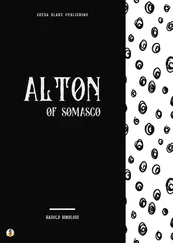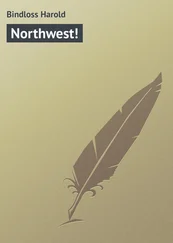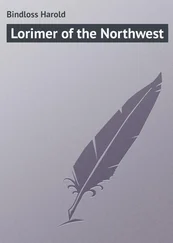Harold Bindloss - Wyndham's Pal
Здесь есть возможность читать онлайн «Harold Bindloss - Wyndham's Pal» — ознакомительный отрывок электронной книги совершенно бесплатно, а после прочтения отрывка купить полную версию. В некоторых случаях можно слушать аудио, скачать через торрент в формате fb2 и присутствует краткое содержание. Издательство: Иностранный паблик, Жанр: foreign_prose, на английском языке. Описание произведения, (предисловие) а так же отзывы посетителей доступны на портале библиотеки ЛибКат.
- Название:Wyndham's Pal
- Автор:
- Издательство:Иностранный паблик
- Жанр:
- Год:неизвестен
- ISBN:нет данных
- Рейтинг книги:5 / 5. Голосов: 1
-
Избранное:Добавить в избранное
- Отзывы:
-
Ваша оценка:
- 100
- 1
- 2
- 3
- 4
- 5
Wyndham's Pal: краткое содержание, описание и аннотация
Предлагаем к чтению аннотацию, описание, краткое содержание или предисловие (зависит от того, что написал сам автор книги «Wyndham's Pal»). Если вы не нашли необходимую информацию о книге — напишите в комментариях, мы постараемся отыскать её.
Wyndham's Pal — читать онлайн ознакомительный отрывок
Ниже представлен текст книги, разбитый по страницам. Система сохранения места последней прочитанной страницы, позволяет с удобством читать онлайн бесплатно книгу «Wyndham's Pal», без необходимости каждый раз заново искать на чём Вы остановились. Поставьте закладку, и сможете в любой момент перейти на страницу, на которой закончили чтение.
Интервал:
Закладка:
A negro began to sing and the rest took up the chorus. The air was strange and dreary but somehow musical, and Marston imagined it was very old. He understood the Kroos had sung their paddling chanties long before the Elizabethan slavers touched the fever-coast. The night was very calm and dark. The figures of the men were indistinct, but when the song stopped Marston heard their labored breathing and the regular splash of oars. They rowed well and he hoped their toil was not wasted. By daybreak they might reach the edge of the wind, but the fickle zephyrs might die away and the fiery dawn break across another glassy calm.
When he was not sculling Marston mused. He was rich and owned it strange that he was there, laboring in the boat, as the slavers labored when they towed the Providence , two hundred years ago. He wondered why men went to sea in sailing ships, to bear fatigues nobody endured at home, to fight for life on slanted yards, and stagger waist-deep about flooded decks. Yet one went, and sometimes went for no reward. The thing was puzzling.
After all, the sea had a touch of romance one felt nowhere else. It was something to brave the middle passage, although one had enough fresh water and no frenzied slaves on board. Marston thought about the old brigs – they towed the Providence three days, under the burning tropic sun. He could picture her. She rode low in the water, with her stone ballast, and freight of parched humanity packed close on the tween-decks and in the bottom hold. She had tall masts, for speed was needed, and the weight aloft would make her plunge and roll. The jerks on the towline embarrassed the boats, but white men drove the exhausted negroes with whips and curses until they dropped the oars and died. Yet they towed her three days.
Marston could not see his watch and wondered how long it was to sunrise. It was unthinkable they should go on rowing in the heat of day; he was tired now and remembering the dark ripples alone sustained him. He thought they had nearly reached the spot where the surface was disturbed, but the fickle puffs of wind might have dropped. Stopping sculling for a few moments, he turned his head. His face was wet with sweat but he felt no coolness on his skin. It was very dark and ominously calm.
He took up the long oar again, twisting it with bleeding hands and bracing his legs. They must keep Columbine moving and his business was to hold the boat straight; trouble with the warp would follow if she took a sheer. For all that, he could not hold out long. He had taken life easily and his body revolted from the strain. In fact, he was beaten now, but it counted for much that the Krooboys rowed. They were raw savages and he was white. They owned his control, but all the advantages money could buy for him had gone. Nothing was left but the primitive strength and stubbornness of human nature. He must not be beaten; he owed it to the ruling stock from which he sprang, and with a stern effort he tugged at the oar.
At length, he felt an elusive chill, and wiping his wet face, looked about. In the east, it was not quite so dark, and when he turned his head the yacht looked blacker and not so large. Hull and sails were no longer blurred; their outline was getting sharp, and he noted that the balloon jib swelled in a gentle curve. One side of his face got cold and when he began to scull again he thought the strain on the rope was less.
A belt of smoky red spread swiftly along the horizon, he heard the high gaff topsail flap, booms rattled and then the yacht got quiet. The tow rope sank and when it tightened there was no jerk. Columbine was stealing up behind them.
"In oars!" said Marston hoarsely. "Let go the warp!"
The boat drifted back to the schooner and bumped against her side until somebody caught a trailing rope. Marston with an effort climbed the rail and dropping on deck saw Wyndham at the wheel.
"Shall we hoist in? The boys are done," he said.
Wyndham nodded. "Day's breaking; it will soon be blazing hot. The sun may kill the wind, but I don't know. It's a fiery dawn."
Blocks began to rattle and when the first boat swung across the rail Marston looked about. Broad beams of light stretched across the sky and the red sun rose out of the sea. He went to a chair under the awning and threw himself down. He had earned a few minutes' rest, but when they had gone he did not move and Wyndham smiled as he noted his even breath. Beckoning a Krooboy, he sent him for a blanket and gently covered the sleeping man.
Marston was wakened by a lurch that threw him off the chair, and getting up stiffly he noted the sharp slant of deck. Then he saw foam boil behind the lee rail and straining curves of canvas that kept their hollowness when the yacht rolled to windward. She trailed a snowy wake across the backs of the sparkling seas and her rigging hummed on a high, piercing note. The sky was blue, but the blue was dim and the sunshine had lost its dazzling glare. One felt a bracing quality in the breeze.
"Looks as if we had hit the Trades ," he said. "What's her course?"
"About North, North-west," said Wyndham, who sat on the stern grating and indicated the Kroo at the wheel. "Bad Dollar is steering by the wind. I reckoned we had better make some northing while we can. Off our course, but the Trades are fickle in this latitude. Suppose you get your sextant. It's close on twelve o'clock."
Marston looked at the nearly vertical sun and laughed.
"I feel as if I'd just gone to sleep," he said and went below.
The breeze freshened and held, Columbine with all plain sail set made good speed, and they laid off a straight course on the big Atlantic chart. The risks of the middle passage were left behind. If they were lucky, she would reach far across on the starboard tack, without their shifting a rope.
Their hopes were justified and at length they made Barbadoes, and sailing between the Windward Isles, entered the Caribbean. One phase of the adventure was over, but Marston with vague misgivings realized that another had begun. Somehow he felt he had not done with the shadow he had shrunk from in Africa. For all that, nothing happened to disturb him as they followed the coast, stopping now and then at an open roadstead, and now and then in the stagnant harbor of an old Spanish town. Indeed, Marston found much that was soothingly familiar; smart liners, rusty cargo boats, and busy hotels. In parts, the towns had been modernized, but civilized comforts, and sometimes luxuries, contrasted sharply with decay and customs that had ruled since the first Spaniards came.
Wyndhams' had agents and correspondents at a number of the ports, but, as a rule, they were dark-skinned gentlemen of uncertain stock. They lived at old houses with flat tops and central patios, where the kitchen generally adjoined the stable, and transacted their business in rooms from which green shutters kept out the light. The business was accompanied by the smoking of bitter tobacco and draining of small copitas of scented liquor. They declared their houses were Wyndham's, but did not present him and Marston to their women.
Except for some American and German merchants they saw few white people. The citizens were mulattos of different shades, negroes, and half-breeds who sprang from Spanish and Indian stock, although it was often hard to guess what blood ran in the Mestizos' veins. For the most part, they were a cheerful, careless lot; the coast basked in sunshine, with high, blue mountains for a background, and Marston felt nothing of the gloom and mystery that haunted the African rivers. At some of the ports Wyndham made arrangements for the extension of the house's trade, but Marston could not tell if he was satisfied or not.
When they lounged one evening on the veranda of a big white hotel, Marston led his comrade firmly to talk about business. The hotel had long since been the home of a Spanish grandee, and although the back was ruinous the Moorish front had been altered and decorated by American enterprise. Marston thought it a compromise between the styles of Tangiers and Coney Island. The rash American had gone and the Fonda Malaguena owned the rule of a fat and urbane gentleman who claimed to have come from Spain. For all that, the Malaguena was comfortable, and after the yacht's cramped, hot cabin, Marston liked the big shaded rooms. The wine and food were better than he had thought, and as he sat, looking out between the pillars, with a cup of very good coffee in front of him, he was satisfied to stay a few more days. Small tables occupied part of the pavement, white-clothed waiters moved about, and people talked and laughed. A band played in the plaza and tram cars jingled along the narrow street. There was a half moon and one could see the black mountains behind the ancient town.
Читать дальшеИнтервал:
Закладка:
Похожие книги на «Wyndham's Pal»
Представляем Вашему вниманию похожие книги на «Wyndham's Pal» списком для выбора. Мы отобрали схожую по названию и смыслу литературу в надежде предоставить читателям больше вариантов отыскать новые, интересные, ещё непрочитанные произведения.
Обсуждение, отзывы о книге «Wyndham's Pal» и просто собственные мнения читателей. Оставьте ваши комментарии, напишите, что Вы думаете о произведении, его смысле или главных героях. Укажите что конкретно понравилось, а что нет, и почему Вы так считаете.












